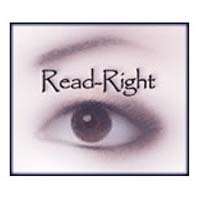New website to help stroke survivors learn to read again

(PhysOrg.com) -- A groundbreaking online tool launched today by University College London promises to help people whose sight has been damaged by stroke to learn to read again.
A medical and technological collaboration between the UCL Institute of Neurology and UCL’s Multimedia team has developed ‘Read-Right’, a therapeutic website designed to help people with Hemianopic Alexia (HA) to improve and test their reading ability from their own homes.
HA damages a person’s sight, usually after a stroke or brain injury, and results in the loss of half of a person’s field of vision. This makes reading difficult and slow. Some people give up reading or even lose their jobs because they can’t read at a sufficient pace.
Read-Right enables people with HA to read scrolling text, which is easier to read than static writing on a page because it creates an involuntary eye movement. The therapy has been shown to improve a person’s ability to read normal text when used as part of a rehabilitation programme. Preliminary findings show that as little as 7 to 14 hours of therapy over several weeks could make reading easier for people with HA.
It also streamlines the current method of improving reading ability by enabling the exchange of audiovisual material and test results between the person with HA and the website, which offers clinical support.
The website is free to use and offers a wide range of reading matter, from classic literature such as Sherlock Holmes and current fiction including Harry Potter to up-to-the-minute BBC news articles.
This unique tool owes its development to an unusual collaboration between the Institute of Neurology, which provided the medical research and clinical expertise, and UCL Multimedia, which researched the technology and developed the software. The website was funded by the Stroke Association.
Dr Alex Leff, consultant neurologist at the Institute of Neurology and lead researcher on Read-Right, said: “The problem for patients with HA is getting access to the therapy materials. Using the internet is the obvious solution. If it works, we could open the door to many more behavioural therapies being delivered in this way.”
Stroke survivor Mark Jarvis added: “If a text reads ‘The cat sat on the mat’, I can only ever see ‘The cat’ until I physically move my head to get the other words. I’m looking forward to using the website to read the daily news and sport. What is great about it is that it’s accessible to everybody, no matter what location you’re in.”
If the website is a success, it will be translated into other languages to help people beyond the UK. The team is currently seeking people whose HA affects the right side of their sight to trial the website, to help assess effectiveness.
More information: www.readright.ucl.ac.uk/














